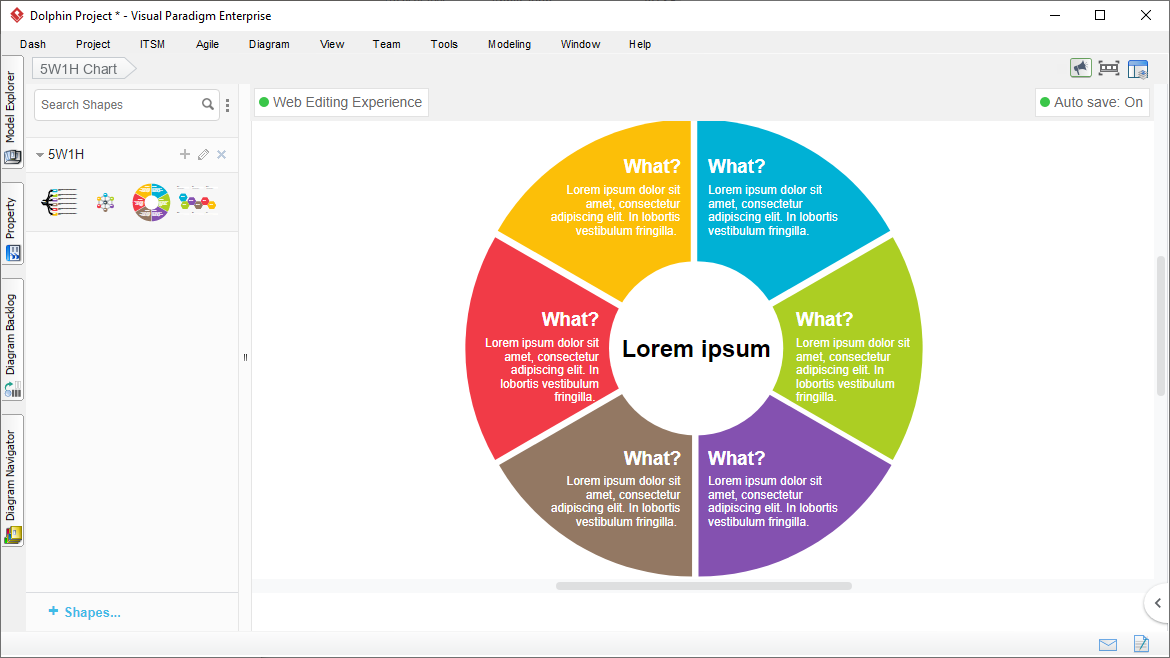Professionally developed 5W1H templates

The 5W1H method is a questioning technique used to explore the cause-and-effect relationships underlying a particular problem. Five W's (who, what, where, when, why) and the one H (how) is great to comprehend the details, analyze inferences, and get to the fundamental facts to solve issues. Visual Paradigm features an intuitive diagram editor and a rich set of 5W1H templates that support your problem solving and presentation needs.
